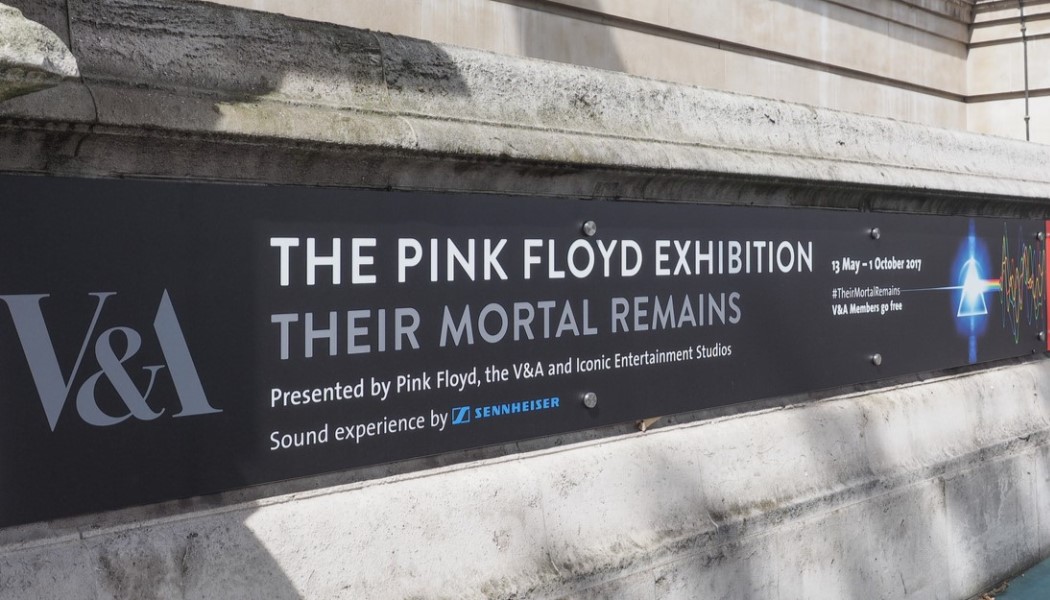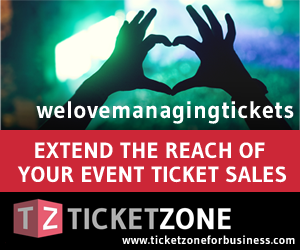Ticket Zone is an independent ticketing service provider based in Barnstaple, North Devon. The company has been involved in the ticketing industry for a quarter of a century and as such has seen a huge shift in how museums and heritage sites manage admissions over the years.
One of the biggest museum projects the company has worked on was Pink Floyd: Their Mortal Remains, the V&A’s most successful ever music exhibition. Over 300,000 visitors attended the record-breaking show, and managing high attendance figures is something with which Ticket Zone is becoming increasingly synonymous.
We sat down with Domingo Tjornelund, managing director of Ticket Zone, to find out how he views the present and future of ticketing within the sector.
What do you see as some of the key considerations for these venues when choosing a ticketing partner?
Ticket Zone’s involvement in event ticketing primarily revolves around extending the reach of marketing and sales for an event into the wider event ticketing arena.
Over the past 30 years we have worked with clients to manage their event inventory helping them get the widest possible market access. The events and tours themselves have ranged from family products such as Disney, Marvel, Batman, Strictly Come Dancing Live and Paw Patrol to arena/stadium tours by some of the worlds biggest acts and then on to green field festivals such as the Isle of Wight.
In 2016 we were involved in managing the Pink Floyd: Their Mortal Remains exhibition at the V&A in London; helping that static production achieve the highest possible sales figures in an very organised way.
How do your systems benefit visitor experiences?
Acting as a Trade Desk distributor and inventory managers we are able to work to integrate systems wherever possible. This does require the support of the Museum site itself but the aim is to allow all the disparate agent ticketing systems to issue e-ticket sales themselves which will then automatically be accepted by the venue entry system.
So the benefit here to the customer is that they can purchase the tickets through their regular preferred ticket partners whilst still enjoying the smoothest passage into the venues on the day they visit.
What changes do you foresee in this area of the industry in the coming years?
We hope that the industry will understand that on certain static promotions they have there is a great benefit in extending the reach of their marketing. We appreciate that some museums are keen to focus on building their own databases but selling tickets and getting people through their doors is a big plus and in time the process will allow customers attracted via the third party outlets to become more aware about their local museum or venue. It’s about being open to the idea of aggregating their stocks on suitable products.
What do you regard as some of the challenges that are specific to ticketing in museums compared to other industries?
One of the biggest challenges is probably the museums and heritage sites themselves understanding the worth of letting go of some of their traditional direct sales methods.
So much of what we all do online today is achieved by electronic aggregation of stock and sales items across the internet. This applies to numerous products we see not just event tickets. API’s are widely touted as a means to doing this and we operate one ourselves but venues and event owners cannot expect every potential ticket outlet to be prepared to write links to their specific API structure.
There are over 180 ticketing systems in the market today and whilst most offer API as a solution there are no fully adopted industry standard interfaces in operation. Software system writers therefore can claim their system offers an API’s but whether anyone is actually prepared to use that API is a moot point.
Manually allocating stock and monitoring that stock across the outlets is where we come in. We then work on methods of integrating as many of the technologies in use back into the venues own system. We look to funnel numerous different operating systems back into a single reference point at the venue.
For some events we work on we have even used local Tourist Information Centres as outlets selling traditional “hard” ticket stocks over the counter and whilst this is a time consuming avenue it is often worthwhile. The point is that not all sales methods have to be based on cutting edge technology and a blend of options is often the best way forward.
Given the ever-growing appetite from museums for a greater understanding of their visitors, what data benefits do organisations receive through implementing ticketing systems such as yours?
Working with agents and outlets does not immediately lead to an increase in your own direct data but it does give your site the opportunity to reach far more people than you usually would and this includes people who would not have attended at all had you not supplied the agents in the first place. The opportunity to data capture exists in other ways when that person attends your venue and becomes more aware of what your site is all about.






